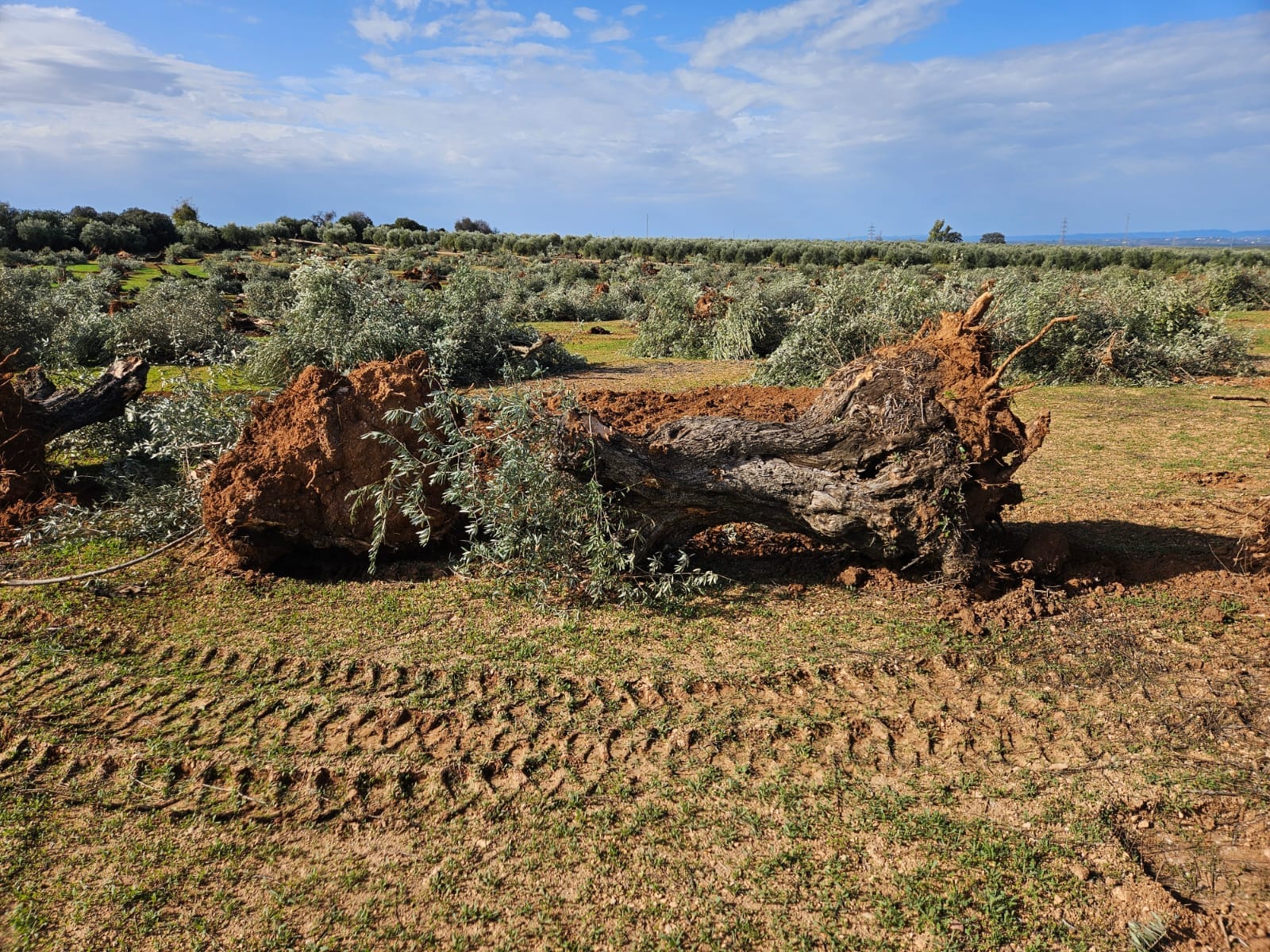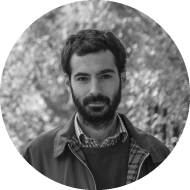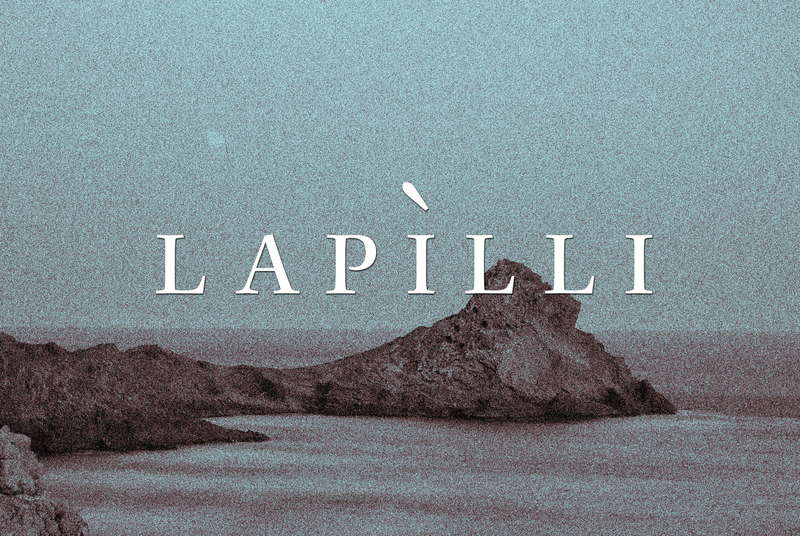Happy New Year to our community of readers! In previous years, we focused more on the year that had just passed. This year, we decided to emphasize what’s ahead — and there’s plenty to share! You might have already heard of the Magmatic School of Environmental Journalism, a program we launched with the support of Journalismfund Europe. Our first cohort of talented journalists is now working (collaboratively and individually) on stories across three main critical themes: overtourism, climate change and cultural heritage; communities affected by pollution, new laws and climate change; energy transition and extractive industries. In this first newsletter of the year, you’ll get a sneak peek at the important stories they’re focusing on. This is also an invite for the editors receiving this email to collaborate — you can find more details on that at the end of this newsletter.
Once again, thank you all for being part of our journey, for your support and the intriguing proposals you sometimes send our way. Here’s to an inspiring year ahead!

Behind the perfect Instagram picture (by Sarah Collins, Vittoria Torsello and Elisa Amouret). Social media-driven tourism endangers species across the Mediterranean as tourists flocking to specific spots for photos put hyper-localized pressure on natural resources like water, damage habitats and exacerbate the effects of the climate crisis.
A sinking heritage. A third of historical sites along the eastern Mediterranean shores — including the ancient Greek cities of Delos and Pavlopetri — are under threat from climate change due to rising sea levels. Can one of the worst affected areas be saved?

The hidden costs of luxury tourism. In Savelletri, a small Apulian town in southern Italy, locals watch in disbelief as the world’s elite arrive for the G7 summit. Outside the polished walls of the five-star resort hosting the event, the stark contrast of reality unfolds: Does Apulia’s push for luxury development — from high-profile summits to opulent hotel resorts — truly benefit the local community?

Marseille’s love-hate relationship with cruise ships. In Marseille, in southern France, exasperated residents, fearing for their health and the environment, have initiated legal action to decrease the number of cruise ships in the French port city. This story portrays a torn community, with some supporting the economic benefits cruise passengers bring to their businesses while others defend their right to a safe environment.


The environmental cost of Europe’s border policies (by Alexander Durie, Goldy Ann Levy and Dafni Karavola). Last summer, the Mediterranean Sea reached a grim milestone: the International Organization of Migration announced that 30,000 migrants had gone missing or died in the sea since 2014. Many dispatches and reports have documented Europe’s border policies solely as a humanitarian issue, but few have looked at the environmental impact of increased surveillance and policing of borders.

The sinking fishermen’s village. A neighbourhood in Alexandria, Egypt, commonly known as a “fishermen’s village” due to its low-lying coastal enclave and picturesque setting, is one of the most vulnerable areas to pollution as it’s surrounded by petroleum, cement, iron and steel industries. Yet, it is also at the forefront of the climate crisis and its population is expected to eventually relocate to survive.

The obstacles to effectively granting rights to nature. In 2022, Spain made history by granting the Mar Menor — Europe’s largest saltwater lagoon — legal status. This groundbreaking legislation was introduced to address the severe environmental degradation caused by pollution, agricultural runoff and unsustainable urban growth in the area. Two years later, though, Mar Menor has shown no visible improvement and the implementation of action on the ground has been stalled by the judicial system.


Lithium, a blessing or a curse for Europe’s periphery? (by Bernardo Álvarez-Villar, Nejra Kravić and Natalie Donback). The European Union’s Critical Raw Materials Act aims to ensure the bloc’s access to the stable — and sovereign — supply of critical raw materials, such as lithium, tungsten, cobalt, copper or nickel, needed to meet its 2030 climate goals. However, the quest for lithium is already sparking social conflict in Europe’s periphery.
How the energy transition is changing the iconic Mediterranean landscape. The energy transition is transforming the Spanish countryside. In Andalusia, thousands of hectares are being expropriated to replace typical Mediterranean crops with solar panels. The affected communities complain that their regions are being turned into huge photovoltaic parks for the benefit of large cities. They argue that it damages the natural and cultural heritage of the area and its landscapes. But, above all, they seek to defend their traditional way of life.


In “Empty Spain,” lithium mining promises jobs — but for whom? According to the Spanish government, the electric vehicle industry could help “reindustrialize Spain in a green and digital way.” But could lithium mining provide lasting quality jobs that advance a just transition or would it endanger existing employment in tourism and agriculture, leaving communities with much of the negative impacts but little of the positive benefits of mining?

This city built — and sinking — on salt may hold a lesson. In Tuzla, Bosnia's third-largest city, salt is both a mineral and a legacy. While the city's name, identity and very foundations are tied to the salt that lies beneath it, its mining came at a steep price. In recent years, though, the city transformed such an extractive business into something that could benefit the community.

Fair compensation for our cohort’s work is a priority for us. However, if your publication lacks the budget, we can discuss republishing the content once it’s released.
Collaboration is at the heart of what we do. Together, we can make these stories shine and amplify their impact!


- A Lawyer’s Battle to Grant Legal Personality to Ecosystems
- Recovering an Ancient Landscape with an Eye to the Future
- Blue Crabs and Lionfish: Dispatches from an Increasingly Tropicalized Mediterranean
- The Long Record-Breaking Fever of Our Oceans
- Egypt's Locally-Adapted Paulownia Forest: Is It an Answer to Many of the Country's Problems?
(based on open rate)
If you like what we do, you can support our work with a small donation by clicking this link or upgrading to the Lapilli Premium plan here.

MAGMA
At Magma, we are committed to reporting on the ways climate change is transforming the Mediterranean region. We currently do so mostly through Lapilli, a monthly newsletter written in Italian and English, that has a free and premium version. Find out who we are and read our manifesto.That's it for this month. Thank you for reading this far. See you in February or earlier with Lapilli+.
If this newsletter was forwarded to you, you can subscribe here to continue receiving it. Lapilli is free and always will be, but in case you would like to buy us a coffee or make a small donation, you can do so here. Thank you!
Lapilli is the newsletter that collects monthly news and insights on the environment and the Mediterranean, seen in the media and selected by Magma.

